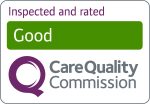Haemochromatosis
A condition where the body absorbs too much iron from the diet. This excess iron builds up in organs — especially the liver, heart, and pancreas — and can cause serious damage over time. A condition where the body absorbs too much iron from the diet. This excess iron builds up in organs such as the liver, heart, and pancreas and can cause damage over time.
Haemochromatosis Overview
Understanding Causes, Symptoms, and Risk Factors
Causes
- mutations in the HFE gene (most commonly C282Y and H63D mutations).
- Inherited in an autosomal recessive pattern — both parents must pass on the faulty gene.
- Most common in people of Northern European descent.
Secondary (Acquired) Haemochromatosis
Caused by other conditions such as
- Repeated blood transfusions
- Chronic liver disease
- Certain types of anaemia (e.g. thalassaemia, sideroblastic anaemia)
- Excessive iron supplements (rare)
Symptoms
- Fatigue, weakness or joint pain
- Bronze, greyish skin tone
- Enlarged liver, cirrhosis, liver damage
- Diabetes
- Irregular heartbeat, heart failure
- Loss of libido, erectile dysfunction, menstrual irregularities
- Arthritis like symptoms
Risk Factors
Can Haemochromatosis be prevented?
Hereditary haemochromatosis cannot be prevented due to it being a genetic condition but complications can be prevented or minimised.

How Chequers can help Diagnose and Treat
Preventive, Trusted, and Affordable Healthcare for All
Chequers Health is a well-known private healthcare provider in Bolton. It is registered with the CQC and trusted by many patients in the Northwest of England. Our dedicated team is committed to providing personalised care tailored to each patient’s unique needs and exceptional care.

Our Clinicians
At Chequers Health, our specialists blend expertise, compassion, and convenience to deliver the care you deserve. We prioritise quick access and personalised care, ensuring that your health needs are addressed promptly and effectively by trusted professionals.
Frequently Asked Questions
Featured Articles
Stay Connected with Chequers Health Group
Join our community and be the first to know about updates and receive insights into how Chequers Health Group continues to provide exceptional and affordable healthcare services.







